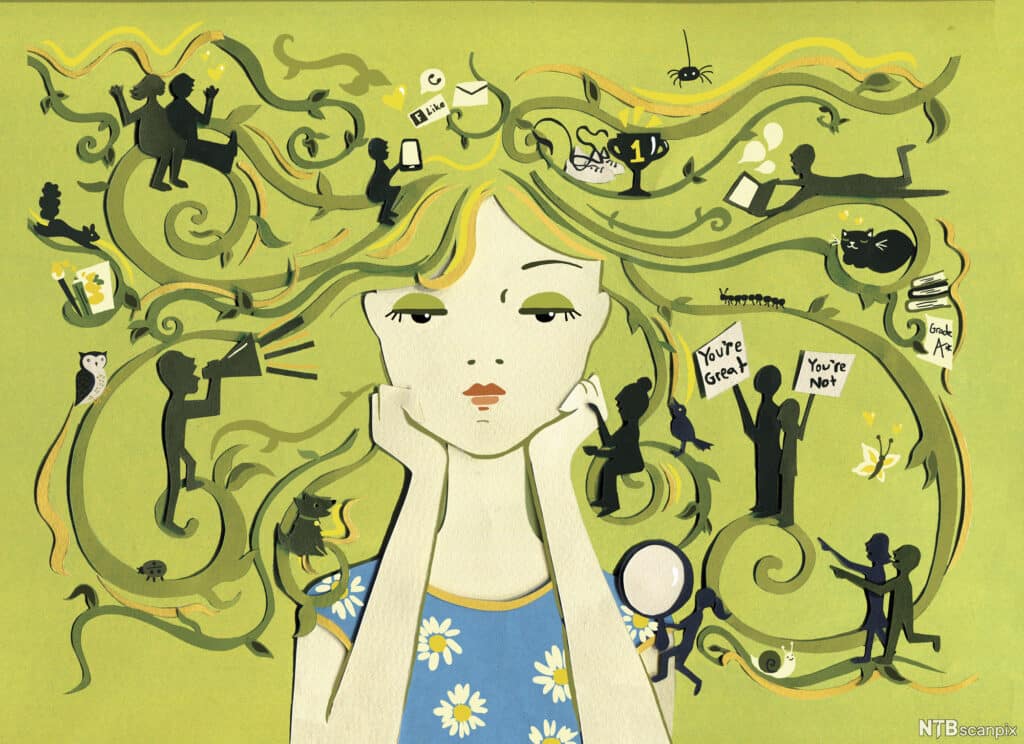Anxiety is a normal human response to stress or perceived threats. However, when anxiety reaches its peak—crippling your ability to function—it transforms from a natural reaction into a debilitating condition. This blog delves into the worst forms of anxiety, their symptoms, triggers, and effective coping mechanisms. If you or a loved one experiences severe anxiety, this guide offers actionable advice and insights to regain control.
What is Anxiety?
Anxiety is characterized by excessive fear or worry about future events. While mild anxiety can motivate you to prepare for challenges, severe anxiety disrupts daily life, relationships, and overall well-being. This intense anxiety often manifests as Generalized Anxiety Disorder (GAD), Panic Disorder, Social Anxiety Disorder, or specific phobias.
Symptoms of Severe Anxiety
When anxiety becomes overwhelming, it is often accompanied by physical, emotional, and behavioral symptoms, including:
- Physical Symptoms:
- Racing heart or palpitations
- Shortness of breath
- Chest tightness
- Muscle tension or tremors
- Gastrointestinal issues (nausea, diarrhea)
- Emotional Symptoms:
- Persistent worry or fear
- A sense of impending doom
- Feeling detached or disconnected from reality
- Behavioral Symptoms:
- Avoidance of triggering situations
- Difficulty concentrating
- Restlessness or irritability
The Peak of Anxiety: Panic Attacks
The worst anxiety episodes often culminate in panic attacks, which are sudden, intense episodes of fear that last for several minutes. Common symptoms include hyperventilation, sweating, dizziness, and a feeling of losing control. Though panic attacks are not life-threatening, they can feel terrifying and increase fear of recurrence.
Common Triggers of Severe Anxiety
Understanding what exacerbates anxiety is critical for managing it. Some of the most common triggers include:
- Stressful Life Events:
Major changes such as moving, job loss, or relationship problems can provoke extreme anxiety. - Trauma:
Past traumatic experiences may cause flashbacks or heightened sensitivity to specific triggers. - Chronic Health Conditions:
Illnesses like heart disease or chronic pain can amplify feelings of helplessness and anxiety. - Substance Abuse:
Alcohol, caffeine, and drugs can worsen anxiety symptoms. - Overthinking:
Constantly replaying negative scenarios in your mind fuels a cycle of anxiety.
Coping Strategies for the Worst Anxiety
Severe anxiety can feel insurmountable, but a variety of tools and techniques can help. Below are evidence-based approaches to cope with and reduce extreme anxiety.
1. Deep Breathing Exercises
Controlled breathing calms your nervous system and slows down your heart rate. A simple technique is the 4-7-8 method:
- Inhale for 4 seconds.
- Hold your breath for 7 seconds.
- Exhale slowly for 8 seconds.
2. Mindfulness and Meditation
Mindfulness encourages staying present instead of worrying about the future. Guided meditations or apps like Calm and Headspace can help ease anxiety symptoms.
3. Exercise
Regular physical activity releases endorphins, which are natural mood elevators. Even a 20-minute walk can reduce stress and anxiety levels.
4. Cognitive Behavioral Therapy (CBT)
CBT helps reframe negative thought patterns and teaches practical coping mechanisms. Consider consulting a licensed therapist for tailored support.
5. Medication
In severe cases, medication like SSRIs (Selective Serotonin Reuptake Inhibitors) or benzodiazepines may be prescribed. Always consult a healthcare professional before taking any medication.
6. Progressive Muscle Relaxation (PMR)
PMR involves tensing and then slowly relaxing each muscle group in your body. This practice helps reduce physical tension associated with anxiety.
7. Build a Support System
Talking to friends, family, or support groups about your struggles can provide emotional relief. You are not alone, and sharing your feelings can lessen their intensity.
Long-Term Management of Severe Anxiety
- Establish a Routine Structured routines provide a sense of stability and predictability, which can alleviate anxiety.
- Limit Triggers Identify and reduce exposure to known triggers, whether they involve social settings, work environments, or lifestyle habits.
- Prioritize Sleep Sleep deprivation exacerbates anxiety. Aim for 7-9 hours of quality sleep each night. Create a calming bedtime routine to wind down.
- Healthy Diet Eat a balanced diet rich in fruits, vegetables, whole grains, and lean proteins. Reduce intake of caffeine and sugar, which can trigger anxiety symptoms.
- Seek Professional Help If self-help strategies are not enough, seek assistance from mental health professionals. Therapy and counseling can provide lasting relief.
When to Seek Help for Anxiety
It’s essential to recognize when anxiety becomes unmanageable. Seek professional help if you experience:
- Persistent, uncontrollable worry
- Difficulty performing daily tasks
- Frequent panic attacks
- Physical symptoms that mimic serious medical conditions
- Suicidal thoughts or feelings of hopelessness
Conclusion
Severe anxiety can feel overwhelming, but it is treatable. Understanding your symptoms, identifying triggers, and adopting healthy coping mechanisms can significantly improve your quality of life. Remember, you are not alone in this battle. Reach out for support, practice self-care, and take one day at a time.
By addressing anxiety head-on, you can regain control over your mind and life. Use the strategies outlined in this guide to embark on your journey toward calmness and resilience.
Keywords for SEO:
- Severe anxiety
- Coping with anxiety
- Panic attacks
- Anxiety symptoms
- Anxiety triggers
- Anxiety management
- Mindfulness for anxiety
- Therapy for anxiety
This blog is optimized with keywords to help those struggling with severe anxiety find the help they need. If you’re looking for support or know someone who is, share this guide—it could make all the difference.
Discover more from Beauty Cosmetics
Subscribe to get the latest posts sent to your email.

